Generally speaking, self-help is not my particular genre of choice. Could be because, like business books, I generally think they’re all really five-page articles that have been extended to 200 page books. Or could be because I’m emotionally stunted and I fear growth. Really, who’s to say?
But also, in the same way that weeping through a sad movie can be as beneficial as a therapy session (I’m still partially dehydrated from Pan’s Labyrinth and also Up), I believe reading a very reflective memoir is a form of self-help work. As gifted authors can turn their specific journeys into universal reflections, we can all work with the questions they raise about family, and identity, about trauma, and about living an authentic life.
I’ve shared some favorite memoirs before (non-celebrity versions, celebrity memoirs are a whole other star-spangled ballgame). The memoirs below are also excellent reads but have a connective thread: despite their wildly different stories, they’re all recounting the path to honoring and discovering their true selves in the face of all the traditions, or obligations, or traumas from their formative years. Maybe they’ll help you work through something your inner child has been holding onto, but also - maybe you’ll just enjoy them as a Good Read.
Kicking it off with Greetings from Utopia Park, a book I don’t think got as much attention as it deserved (though Terry Gross did interview the author so really what more can one ask? #MANIFESTINGTERRY). When the author was a child, her mother moved her and her siblings to the national Transcendental Meditation headquarters in Iowa, and this is her story of growing up with meditation, the Maharishi, and the promise of spiritual enlightenment on one hand and with her desire to be a “normal” adolescent and the disappointments and falsehoods of her life on the other. It’s wry, honest, and well written (she’s a journalist by profession), probably really relevant for anyone trying to make sense of a childhood with strict dogma of any kind (religion, food, behavior). Or good if you’re just interested in things that are a little bit culty, as I am - where my Vow lovers at?
How We Fight for Our Lives is a raw but vulnerable, riveting but lyrical memoir of a gay, Black child growing up in the South and coming of age story that wrestles with the intersection of race, of power, of sex and sexuality. It’s also a love story to a mother who fought for him but also had her own homophobia that caused pain as he comes into his own identity. The author is a poet and that sings through in the writing, which is musical and has lots of unexpected but perfect turns of phrase. Here’s a sample:
‘People don't just happen. We sacrifice former versions of ourselves. We sacrifice the people who dared to raise us. The 'I' it seems doesn't exist until we are able to say, 'I am no longer yours.'
NO, BUT, I MEAN!
Oh, you love a powerful memoir and can handle reading about trauma? Let me serve you up a little Hunger. If you’re reading a book newsletter you’re probably familiar with Roxane Gay’s writing and/or you’re my relative, but you may not have read this. In Hunger, she addresses truly horrific violence in her childhood (TW: sexual assault) and how it informed how she related to her body, how she both saw it as an enemy and also how she gained weight to protect it, and how to think now about a body she loves and also sees as a source of anxiety, of shame, of disappointment. And any human alive can relate, or will, to a body that has betrayed or surprised us in some way, right? It’s often a brutal read but also quite beautiful, and whip smart in an accessible way.
OK, I say writing this on an Apple product - but I really believe the cult of Steve Jobs and the related permission to be a terrible genius has done great damage to leadership and business. And this memoir, Small Fry, by his first daughter (whom he did not claim for a while), reinforces that while also reminding us of the emotional devastation parents can create in a child’s life, whether intentional or not. Frankly, the lengths that the author goes to in order to show her deceased father grace and understanding is both sad but also quite moving. And, it’s a terrific portrait of a complicated man through the eyes of someone who loved more than she felt love.
Lastly, you might want to check out Don’t Let’s Go to the Dogs Tonight, a memoir of the author’s childhood as the daughter of white, English farmers in southern and central Africa in the 70s and 80s. It paints a particularly vivid portrait of her mother who was clearly a force of nature in both her passionate, fearless embrace of life but also her coldness, her lack of maternal nurturing. (If you had a complicated relationship with your mother, perhaps tuck in?) Plus, it’s just a wild tale of this child’s adventures - snakes! leopards! malaria! reading! humor! joy! sadness! It’s all there.
As always, the above link to Bookshop.org, which supports independent bookstores. A great cause, because doesn’t a bookstore substantially improve a town? You can see allllll - like, all - my past recommendations on my affiliate page here. I’ve never actually made any money from that but if I do, it will be donated to Defy Ventures, a wonderful and worthy non-profit supporting incarcerated people.




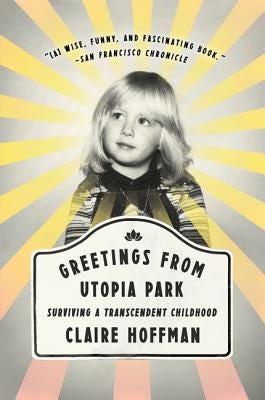
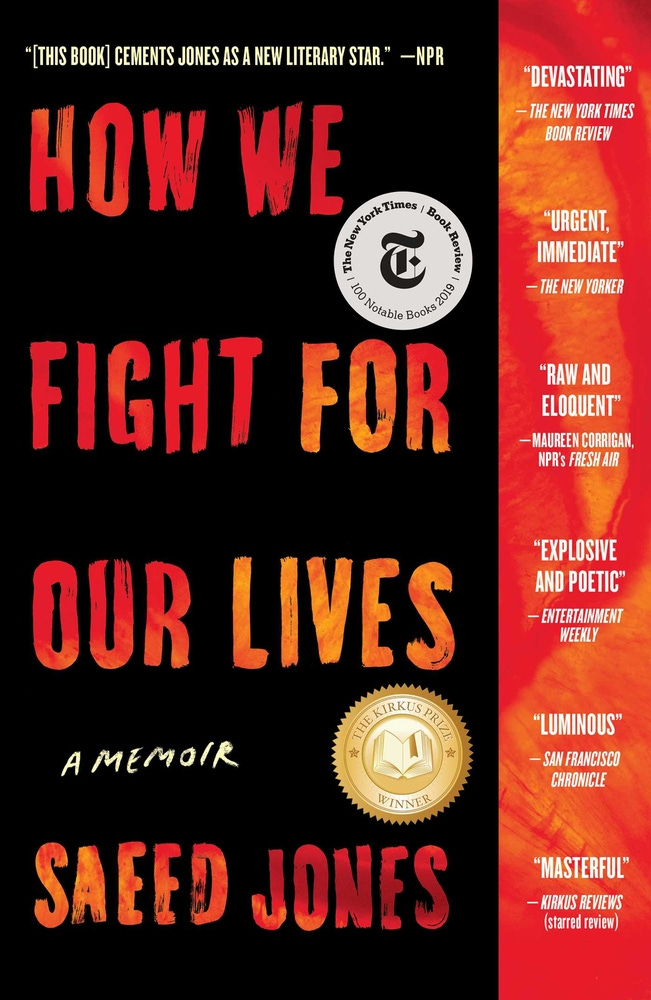
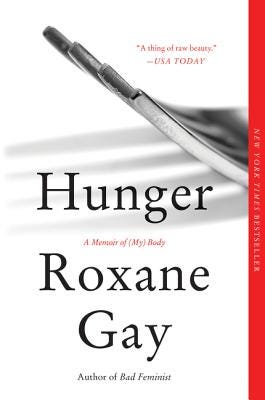
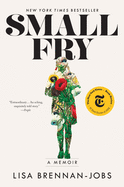
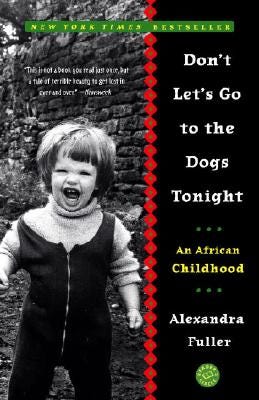
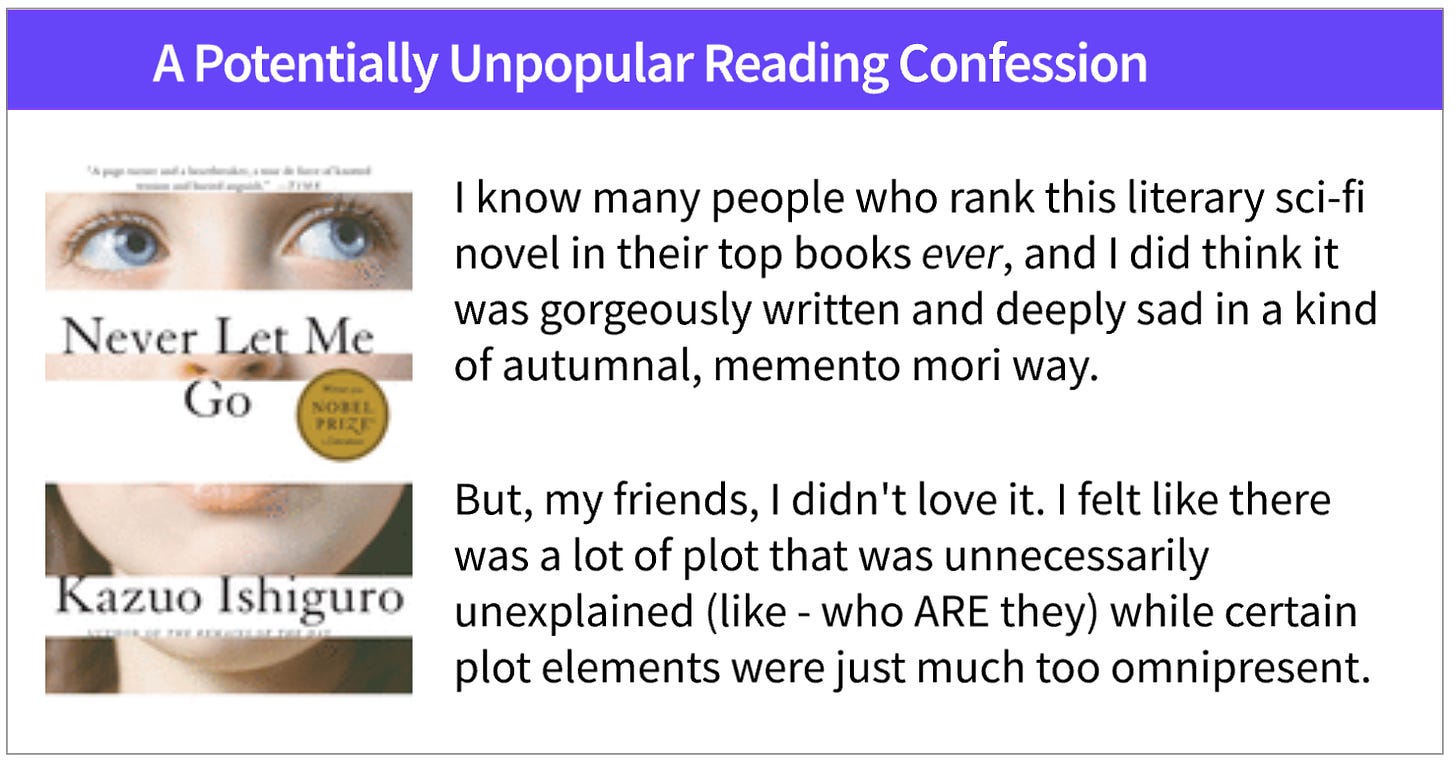
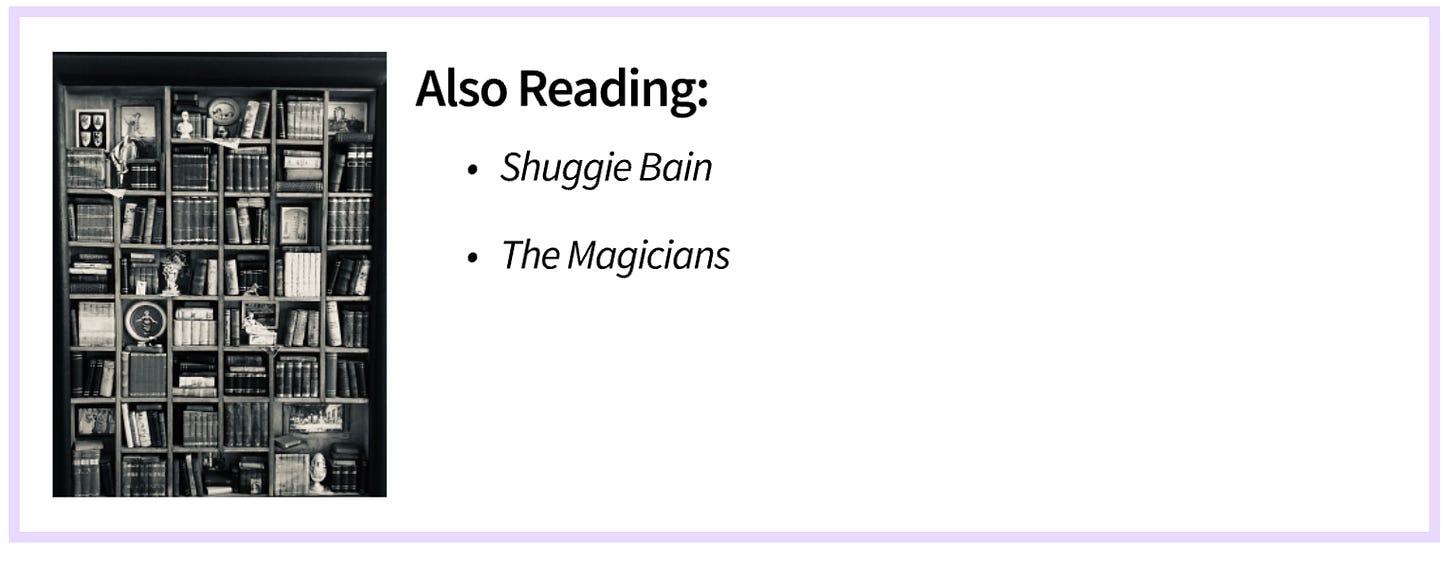
Also writing this on an Apple product and also 100% concur with this: "...the cult of Steve Jobs and the related permission to be a terrible genius has done great damage to leadership and business." Added to my library queue! Thank you!
I thought Never Let Me Go was a beautiful and thought-provoking and really important contemplation of some big... BIG... ethical questions that we should still be contemplating more than we are, but also felt sort of unfinished. It had echoes of Murakami for me - a shade confusing throughout.